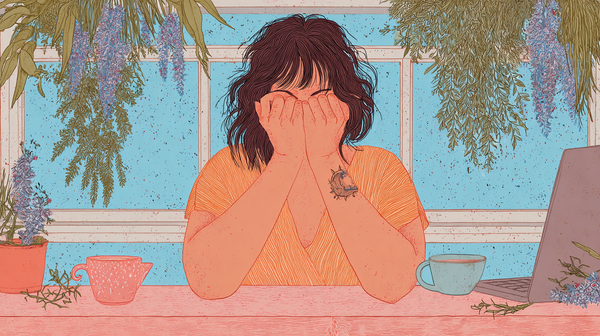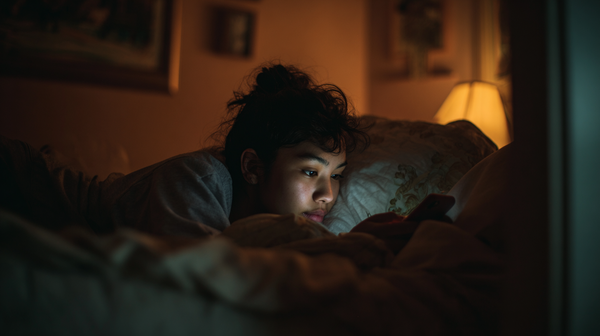Inside the Manosphere: What It Is, Why It Matters, and How It’s Shaping Men Today 🙍♂️
Explore the truth behind the manosphere—its factions, appeal, and why understanding it is key to addressing modern male mental health.
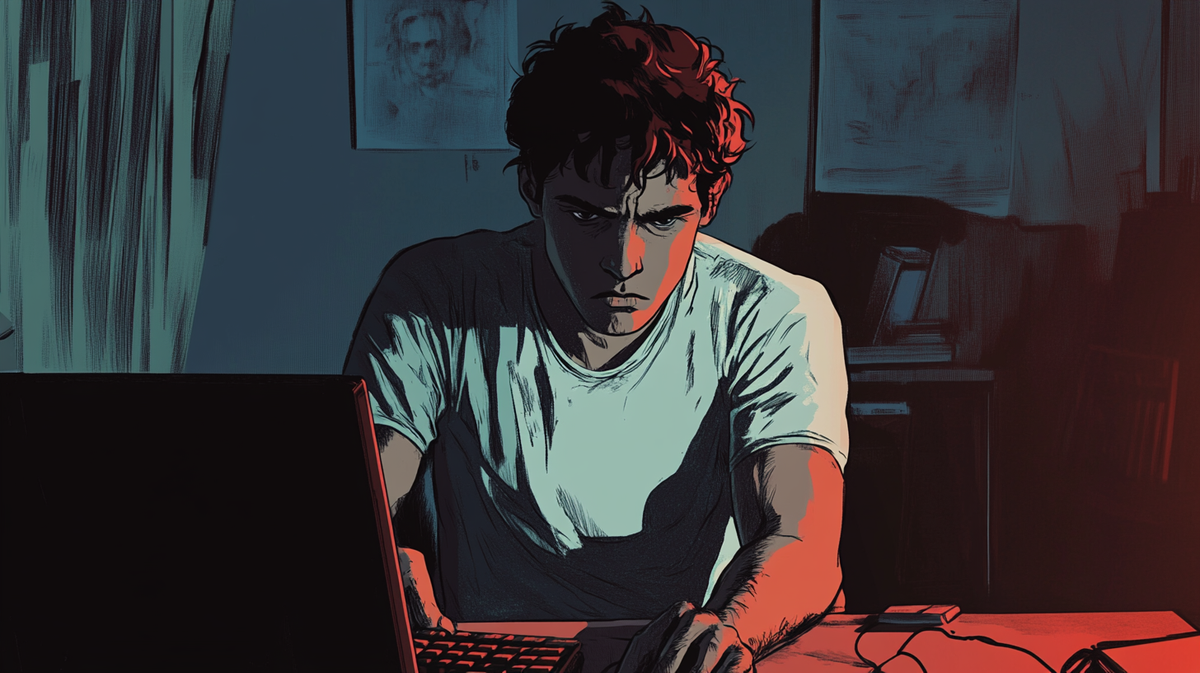

There's a whole universe of men online - talking, venting, raging, bonding - that most therapists, journalists, and policymakers still don't really understand. It's not just red flags and red pills. It's a swirling mess of unmet needs, algorithmic attention, half-truths, brotherhood, bile, and broken mirrors.
Welcome to the manosphere.
This week, I'm stepping into that world - not as an anthropologist in a hazmat suit, but as a man who sits with men for a living. A man who's had hundreds of quiet, complicated conversations with clients about shame, sex, fear, purpose, and power. But I've also noticed who isn't making it through my door. Who's ghosting therapy before they even show up. Who's finding answers - and identity - elsewhere.
So I want to understand it. Not to dunk on it. Not to defend it. But to map it - clearly, honestly, and with a bit of empathy - because if we're going to help men grow, heal, or even just stop spiraling, we have to know where they're gathering. And what they're being told when they get there.
So... What Is the Manosphere? (And What It Definitely Isn't) 📍
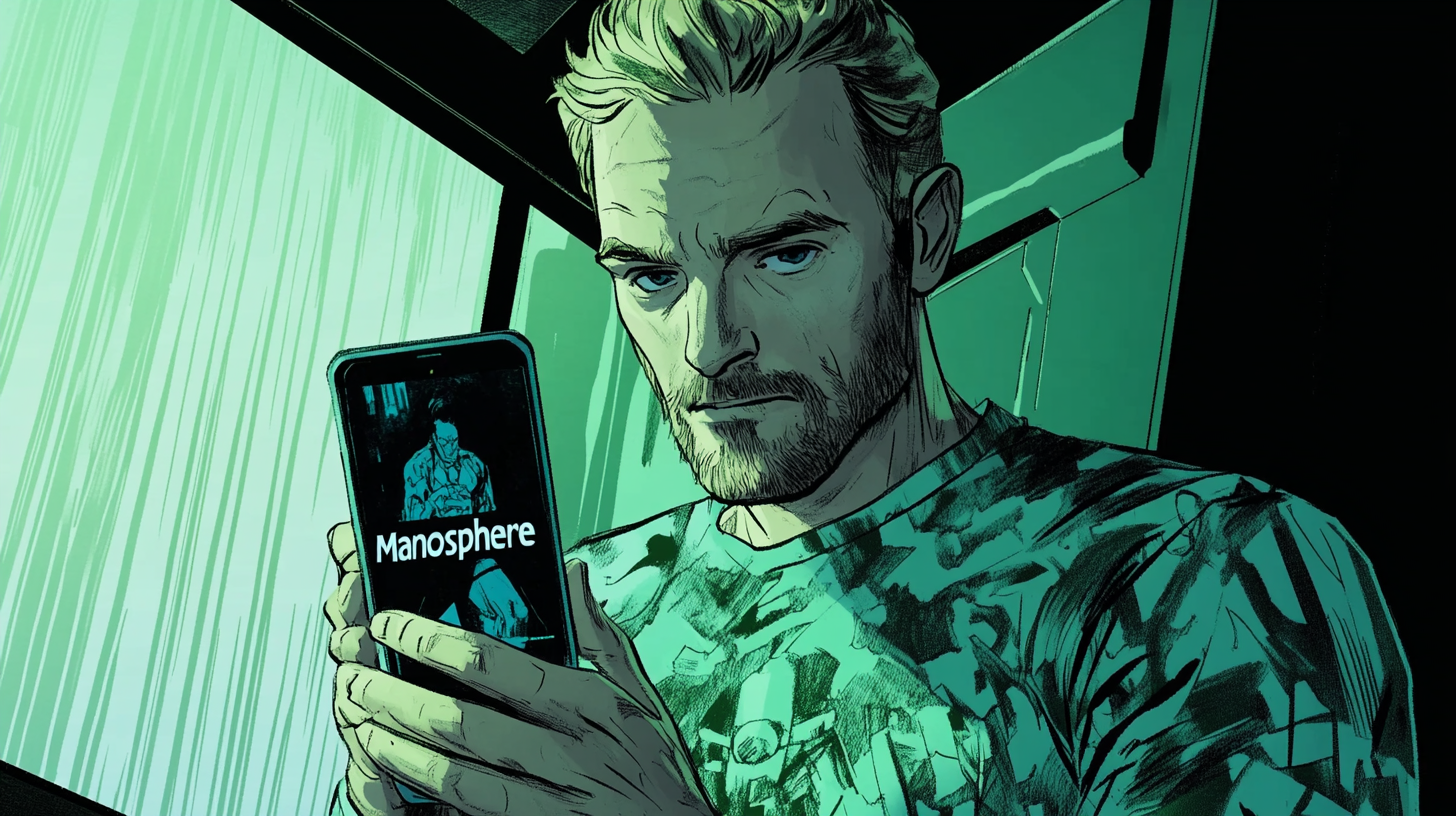
Let's get one thing out of the way: the "manosphere" isn't one neat little club. There's no membership card. No secret WhatsApp group where Jordan Peterson, Andrew Tate, and your gym-obsessed cousin are trading protein tips and conspiracy theories. The term itself is awkward - a catch-all invented mostly by journalists and researchers to label the sprawling, unregulated corners of the internet where men are talking about being men.
But the manosphere does exist - not as a unified movement, but as a loose constellation of forums, influencers, YouTube channels, subreddits, and TikToks where topics like masculinity, dating, power, status, sex, mental health, fitness, politics, and "the system" are endlessly picked apart, memed, and argued over.
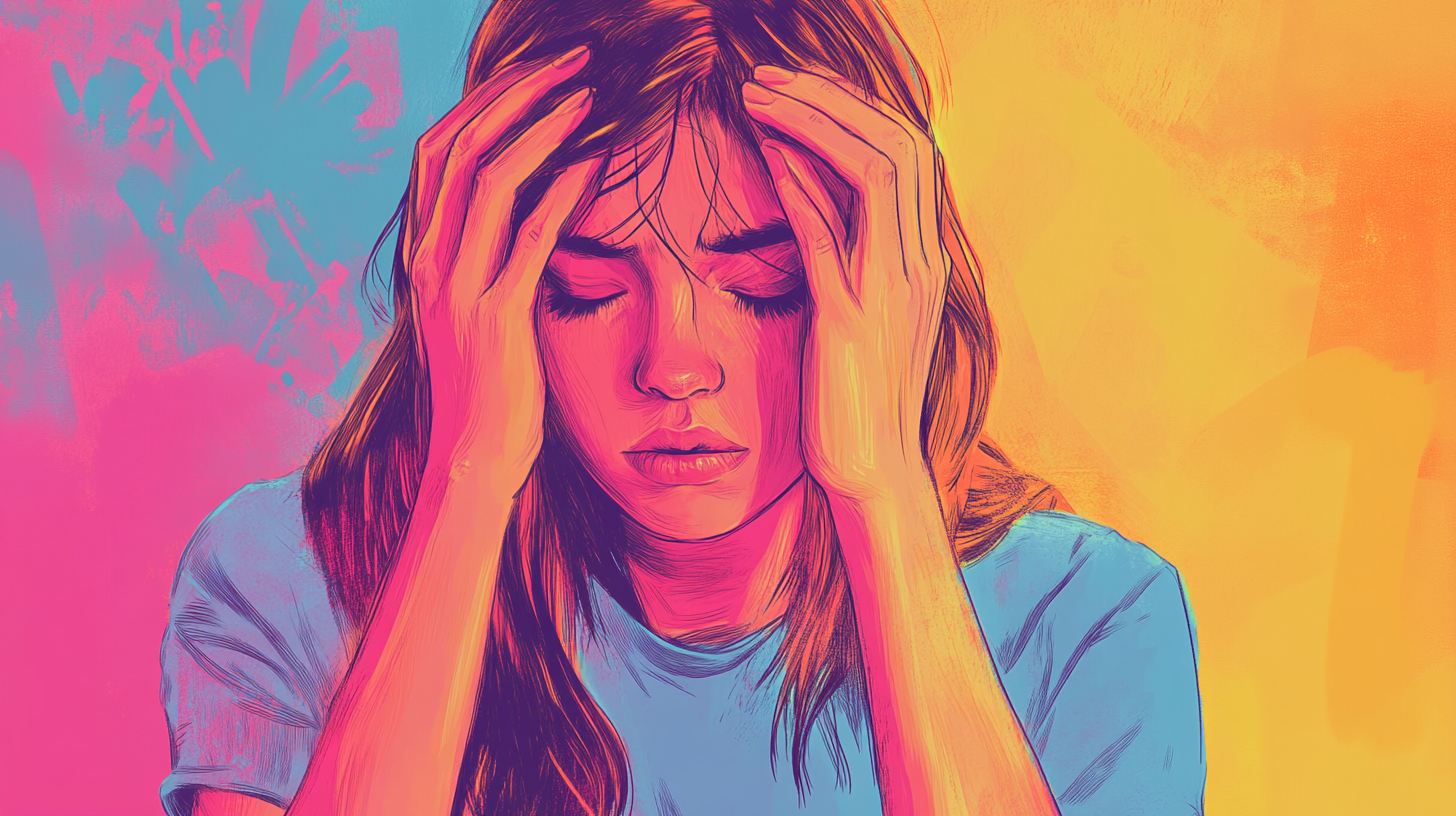
It ranges from:
- Legit self-improvement spaces (fitness advice, no-nonsense budgeting, "get your life together" content)
- To dating strategy corners (ranging from slightly awkward to outright transactional)
- To anti-feminist echo chambers (where "woke" is a slur and women are the problem)
- To full-blown radicalisation pipelines (incel forums, extreme misogyny, and conspiracy-laced gender war rhetoric)
In other words: it's not just Andrew Tate. And it's not just hate.
Yes, there's plenty of toxicity, but painting the entire manosphere as a cesspit of misogyny misses something critical: it's also where a lot of men go when they're hurting. When they don't trust institutions, when therapy feels alien, when no one in their real life is talking about pain or shame or rejection. It's community, validation, and belonging - even when it's warped.
So while the word "manosphere" might sound like some kind of fragile bro-atmosphere, what we're really talking about is a digital ecosystem. And ecosystems aren't evil. But they do need tending.
The Manosphere Isn't One Thing - So Let's Stop Pretending It Is 🗺️
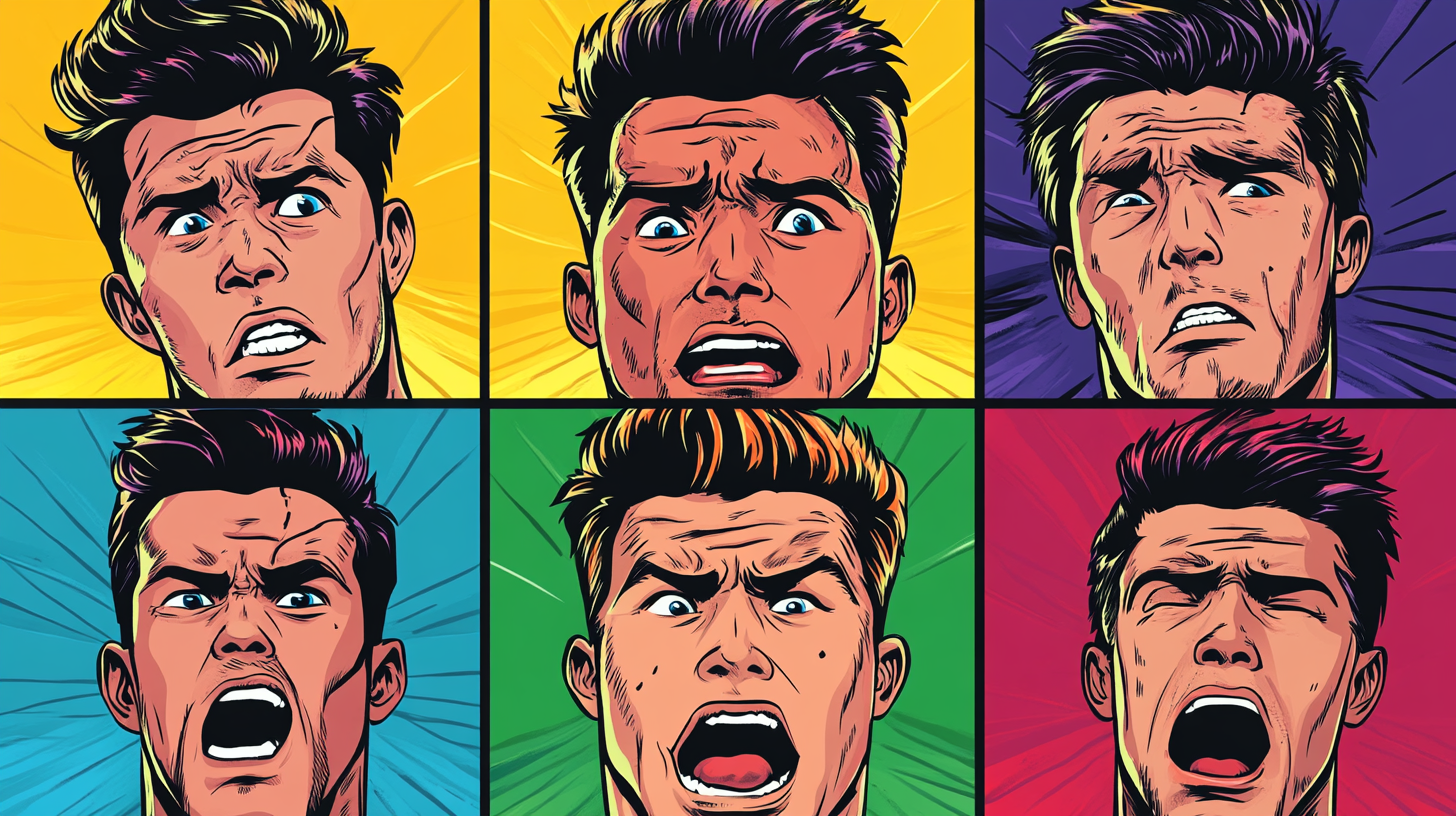
If you've ever heard the word "manosphere" and instantly pictured Andrew Tate shouting at the internet, fair enough. But the truth? It's like saying therapy is just talking isn’t it?? At first blush it can look that way, but look a little closer and you'll see a cacophony of modalities, approaches and ideas playing out under one banner.
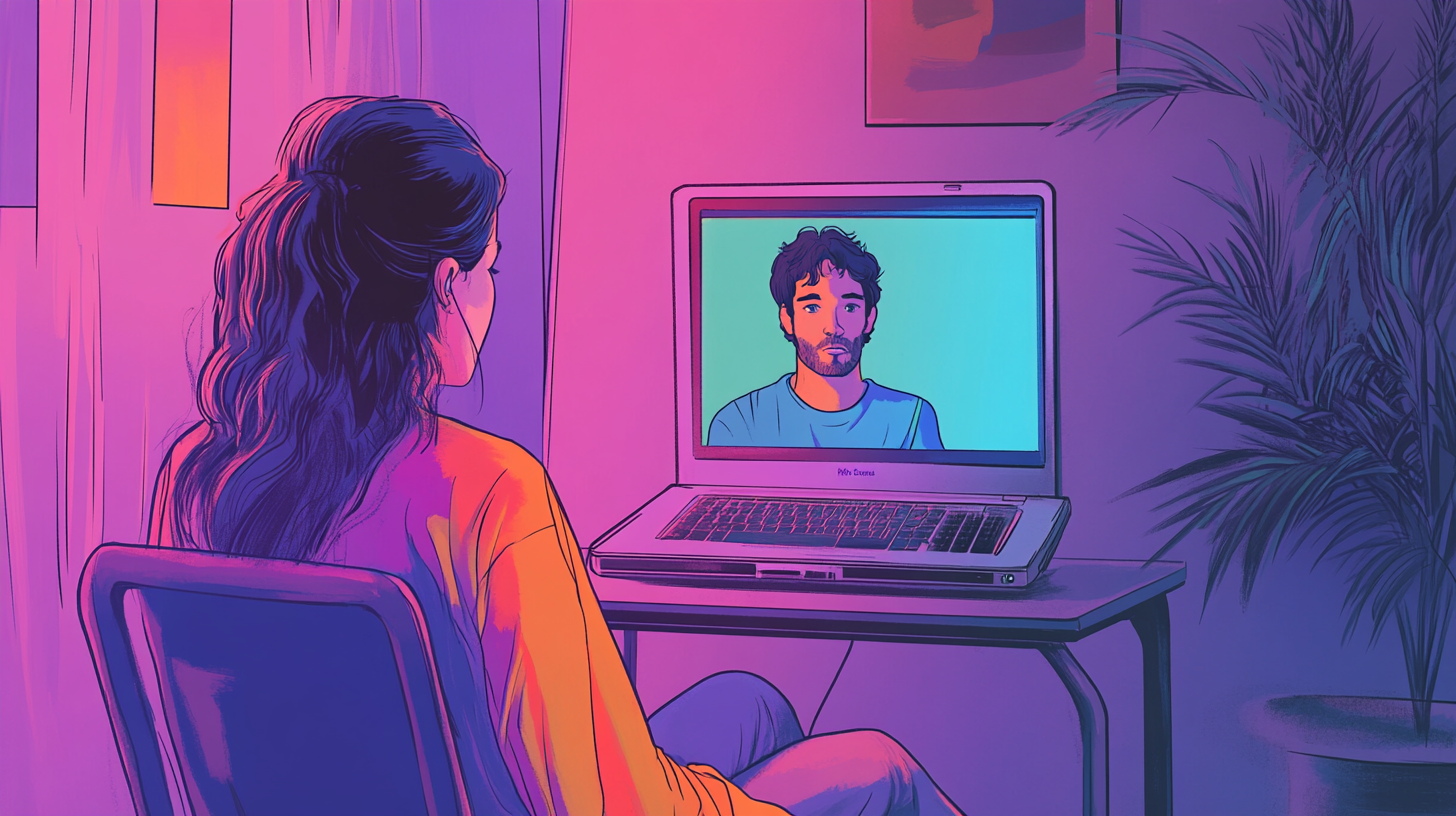
The manosphere isn't a single room - it's a sprawling, often contradictory house party with a dozen subcultures blaring different music in each room. Some of it's toxic. Some of it feels confused. Some of it's actually trying to help.
So let's walk through the main factions - the guys, the gripes, the group chats. Who they are, what they believe, and where they're hanging out:
1. The Pick-Up Artists (PUAs): "Game" is life
These are the original street magicians of the dating world - guys who treat romance like a video game, where the right combination of negging and cologne unlocks female attention.
- Most likely to quote: The Game by Neil Strauss.
- Influencer vibes: Roosh V, though he's now pivoted to Orthodox Christianity.
- Where they live online: YouTube how-to channels, odd Twitter threads, and sometimes dating "coaches" on TikTok.
- What they want: Control, confidence, and women - ideally lots of them.
- What's really going on: They’re anxious about masculinity, navigating intimacy, and managing perceived rejection.
2. MRAs (Men's Rights Activists): The system is rigged
At their core, MRAs raise real questions about things like custody battles, false accusations, and boys falling behind in education. But when the volume's up too high, it can tip into finger-pointing and fury at feminism.
- Most likely to say: "If the roles were reversed..."
- Influencer vibes: Paul Elam, founder of A Voice for Men.
- Where they live online: r/MensRights, legacy blogs, legal forums.
- What they want: Fairness, or at least the feeling of being heard.
- What's really going on: Pain around being dismissed, mocked, or ignored - sometimes valid, sometimes misplaced.
3. MGTOW (Men Going Their Own Way): Nope. Not playing
These are the guys who've opted out. No relationships, no emotional labour, no "simping." Just men doing life solo - often framed as empowerment, but sometimes sounding a bit... bitter.
- Most likely to own: A custom-built off-grid cabin and a YouTube channel with 23k subscribers.
- Where they hang out: Previously Reddit (until banned), now YouTube, private forums.
- What they want: Autonomy. No risk of divorce court or emotional chaos.
- What's really going on: Burnout, betrayal, or just an honest retreat from systems they feel punished by.
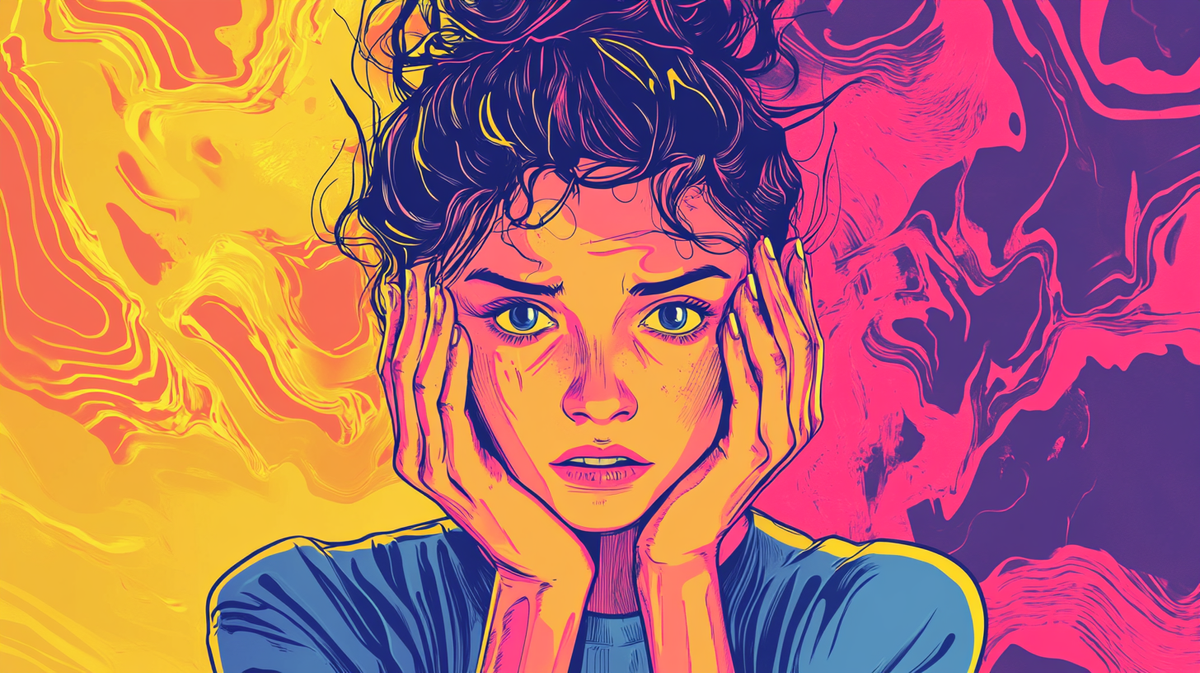
4. Incels: Involuntary celibacy turned ideology
This one's harder. What starts as pain - deep, guttural, unacknowledged loneliness - calcifies into rage. Rage at women. At attractive men. At society. It's bleak. And in some cases, radicalised.
- Most likely to idolise: Elliot Rodger (yes, that Elliot Rodger).
- Where they live online: incels.co, 4chan, fringe Discord servers.
- What they want: Validation, revenge, or just to be seen.
- What's really going on: Despair turned sour. Unmet needs dressed up as hate.
5. Red Pillers: "I've seen the truth"
Take The Matrix, sprinkle in gender politics, and you get the Red Pill crew. They believe they've woken up to the way women "really" work, and how society screws men over.
- Most likely to quote: Jordan Peterson, Andrew Tate, or obscure evolutionary biology facts.
- Where they live online: r/TheRedPill (quarantined), YouTube, Rumble, podcasts.
- What they want: Power, status, and to feel like they've got the rules figured out.
- What's really going on: A craving for structure and identity in a world that's moved the goalposts quickly.
6. Black Pillers: It's all pointless anyway
These are the nihilists of the manosphere. Looks are everything, they say. Genetics rule the world. If you're not tall, jawed, and jacked - you lose. Period. The result? Hopelessness, often wrapped in hostility.
- Most likely to say: "Chads win. Always.
- "Where they hang out: Lookism.net, fringe imageboards, incel subforums.
- What they want: Nothing. It's too late.
- What's really going on: Depression in disguise. Masked helplessness that too often gets ignored - or worse, weaponised.
So... why map this out? 🗾
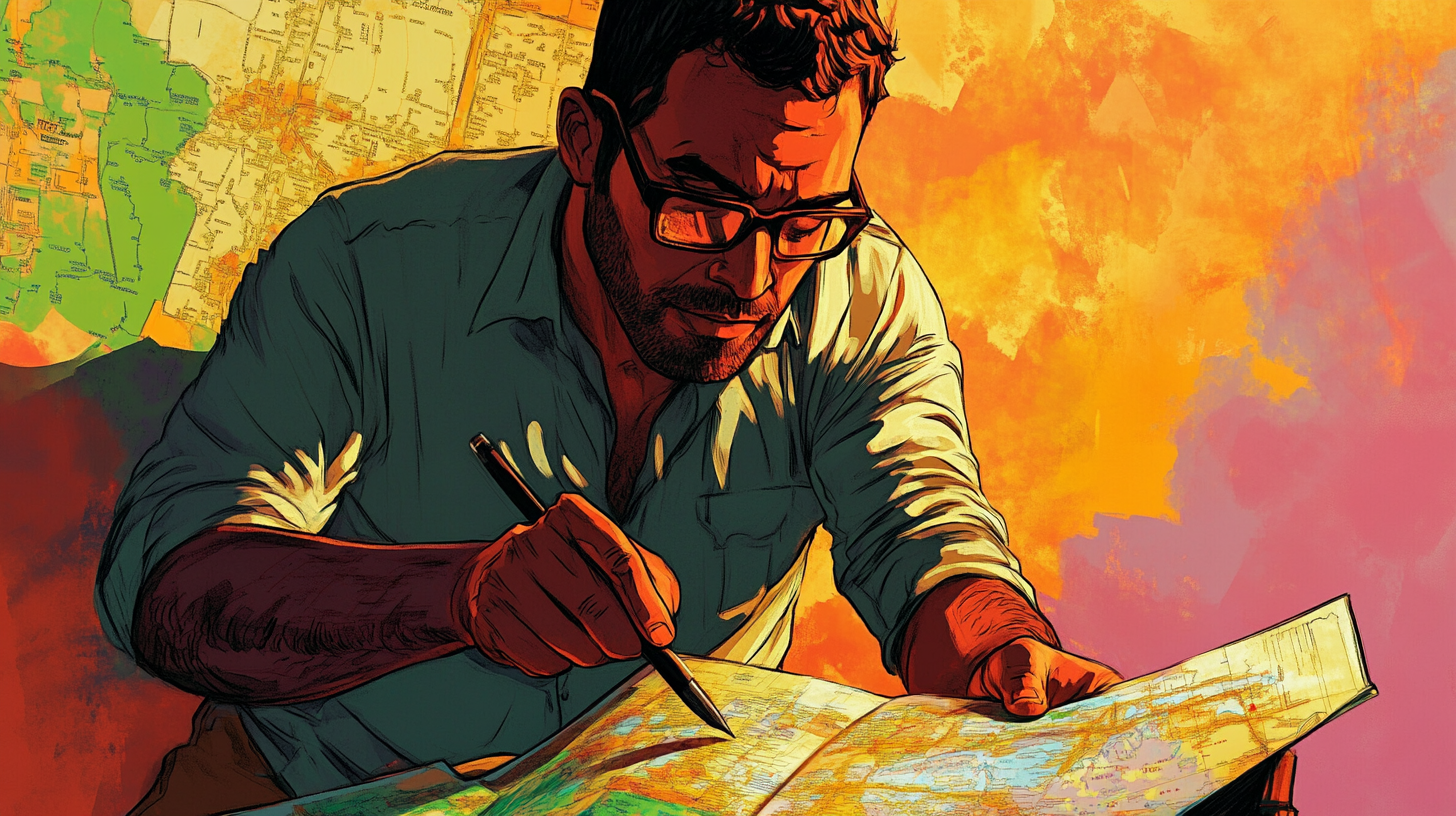
Because if we don't understand where men are going for answers, we leave the door open for someone else - often louder, angrier, and far more dangerous - to walk in and give them one.
As a therapist, I've sat with men who feel ashamed to ask questions. Who've swallowed scripts handed to them by TikTok "alphas" because they didn't know where else to turn. Who've numbed their pain with irony or rage. And I've seen what happens when they start unpicking those scripts, for real.
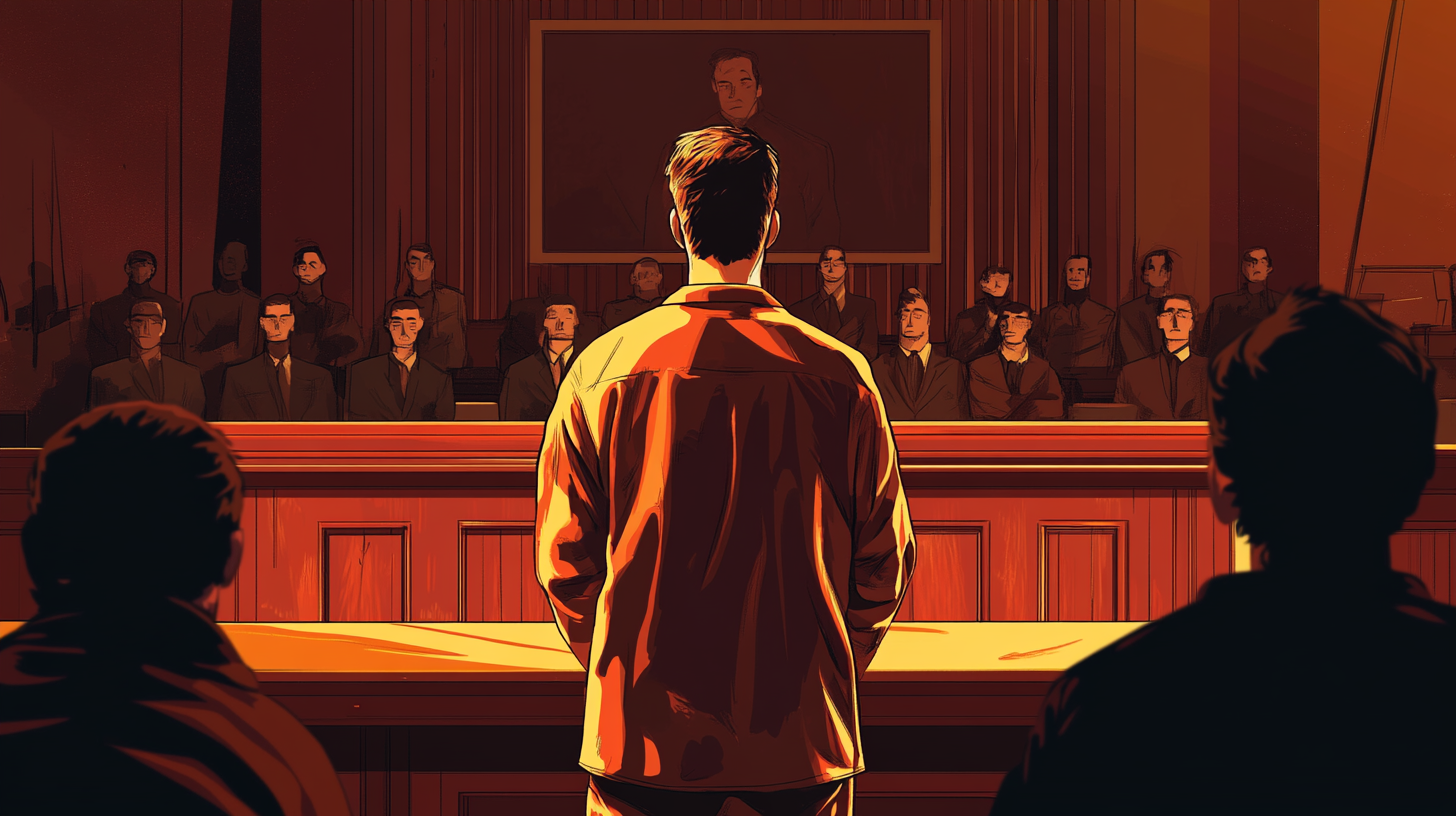
This is why we need to look at the manosphere with curiosity, not just condemnation. It's not about defending it. It's about understanding the loneliness beneath it - so we can meet it with something better.
A good way of understanding this space is to look at where it came from. As I’ve written before, the origins are at odds with what we see today.
The Men's Rights Movement: When Valid Pain Meets a Loud Megaphone 📣
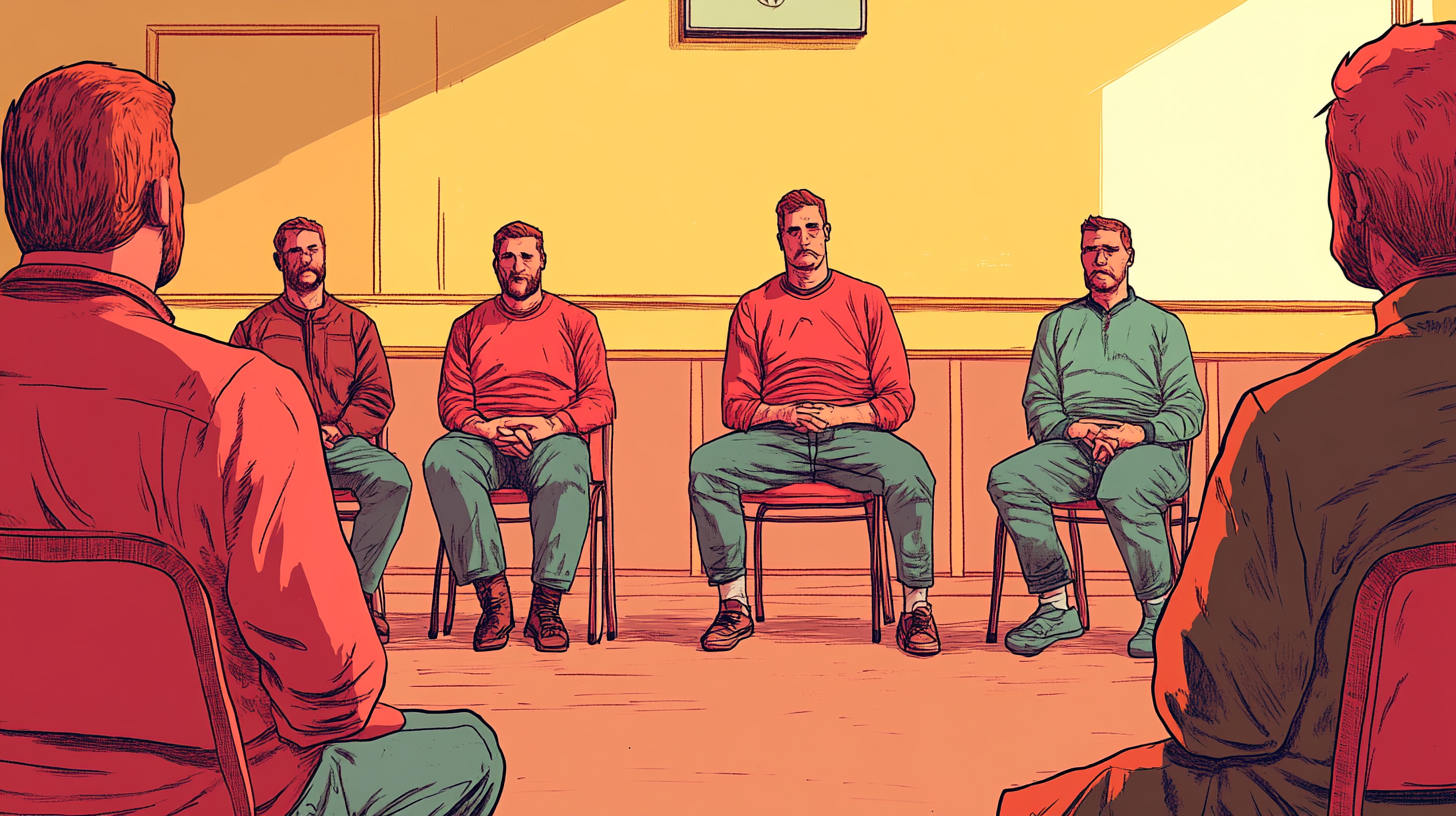
Studying the origins of the manosphere reveals that these ideas are way older than many of us first thought. The origins can be traced back to the men’s liberation movement (MLM). Emerging in the 1960s and 70s in Britain and North America, it was, according to gender scholars, a response to the growth of the feminist movement, counterculture, women's and gay liberation movements, and the sexual revolution.
In its early days, it focused on the negative aspects of "traditional" masculinity, arguing it was the constraints of traditional masculine stereotypes that were preventing men adapting to a shifting world. It was largely pro-feminist, and saw the emergence of women’s rights as inspiration for helping men respond to restraints society imposed on men.
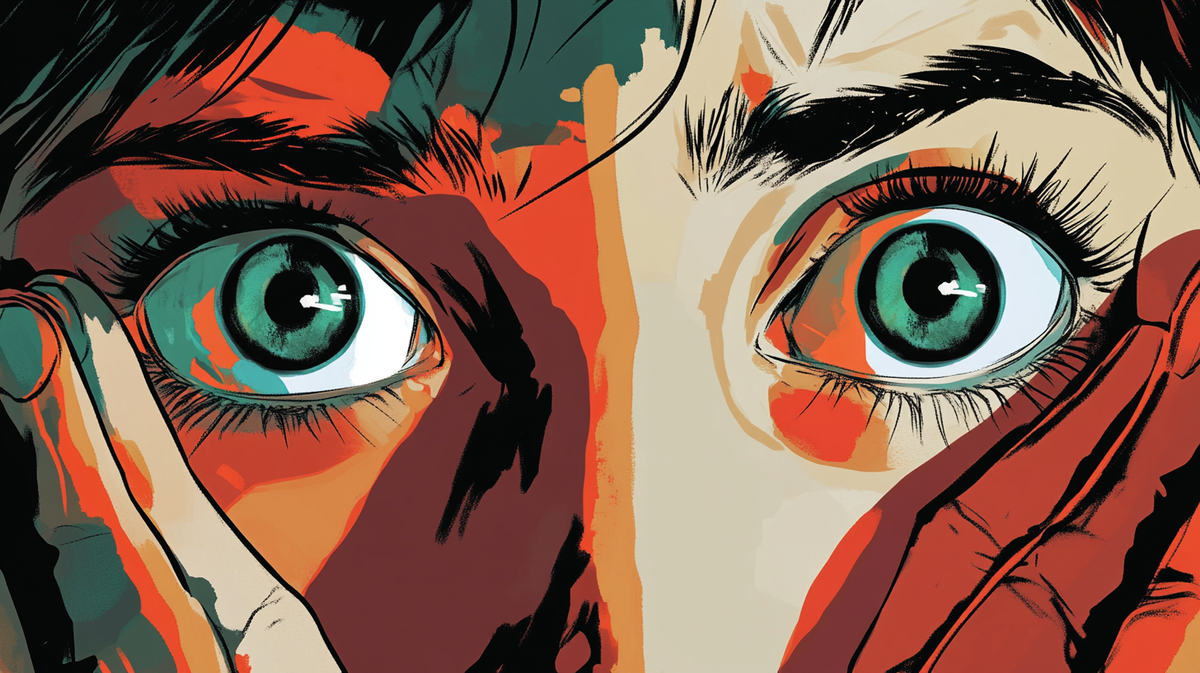
But while one group leaned in with feminism to challenge gender roles, the Men’s Rights Movement (MRM) turned the other way - toward grievances and perceived injustices against men. Think divorce courts, custody battles, false accusations, and the belief that society quietly sidelines boys and men.
By the 1980s, MRM and MLM had split in two, with the former doubling down on the rise of women as the reason for the fall of men. The MLM, meanwhile, lived on, but was increasingly marginalised. Although you can still find outposts like r/MensLib on Reddit, which preserves the pro-feminist roots and is regarded by many as a healthy and safe space for how traditional gender roles can and do hurt men.
But ultimately, it's the Men’s Rights Movement that formed the foundation for what we see in parts of the manosphere today.
Key Players in the MRM early days (and the energy they bring) 👨💻
- Warren Farrell, the MRM's philosopher-king, started out working with the National Organization for Women before about turning with the release of The Myth of Male Power, his book from 1993 that argued Men aren't privileged - they're disposable.
- Paul Elam, the founder of A Voice for Men, brought a sharper edge. Less research, more rage.
- Erin Pizzey, famous for launching the UK's first domestic violence shelter, became an MRM darling for suggesting women could be equally violent.
From Bulletin Boards to the 'Sphere 💽
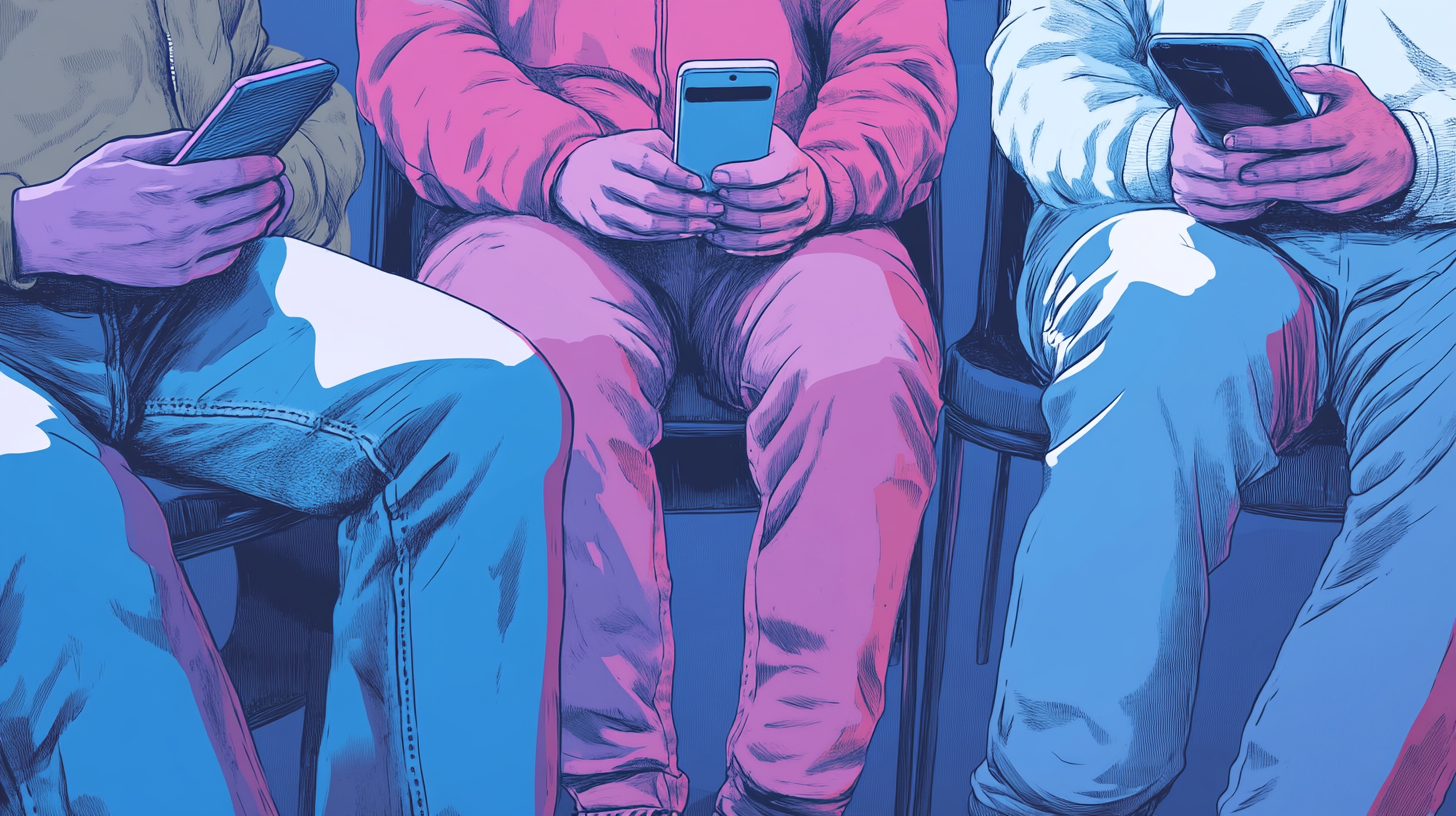
What started in newsletters and community halls is now fully online. Reddit, YouTube, Twitter, Discord - the manosphere is where the MRM hangs out today. But it's also where it gets blurry.
While the MRM paved the way, it’s no longer the only voice in the room. It shares digital turf with pickup artists, red pillers, MGTOWs, and incels - each louder, angrier, and more extreme than the last. And while some of the original MRM concerns (male suicide rates, education gaps, bias in family courts) deserve air time, they're often drowned out by misogyny dressed as activism. This is a problem not just for the manosphere, but for everyone else, too.
Debates on the internet tend to pit the most extreme factions of the manosphere against those advocating for women’s rights and equality. And do you know what happens when men (and women) are exposed to this content? They cling to the views of the influencers that show them the content.
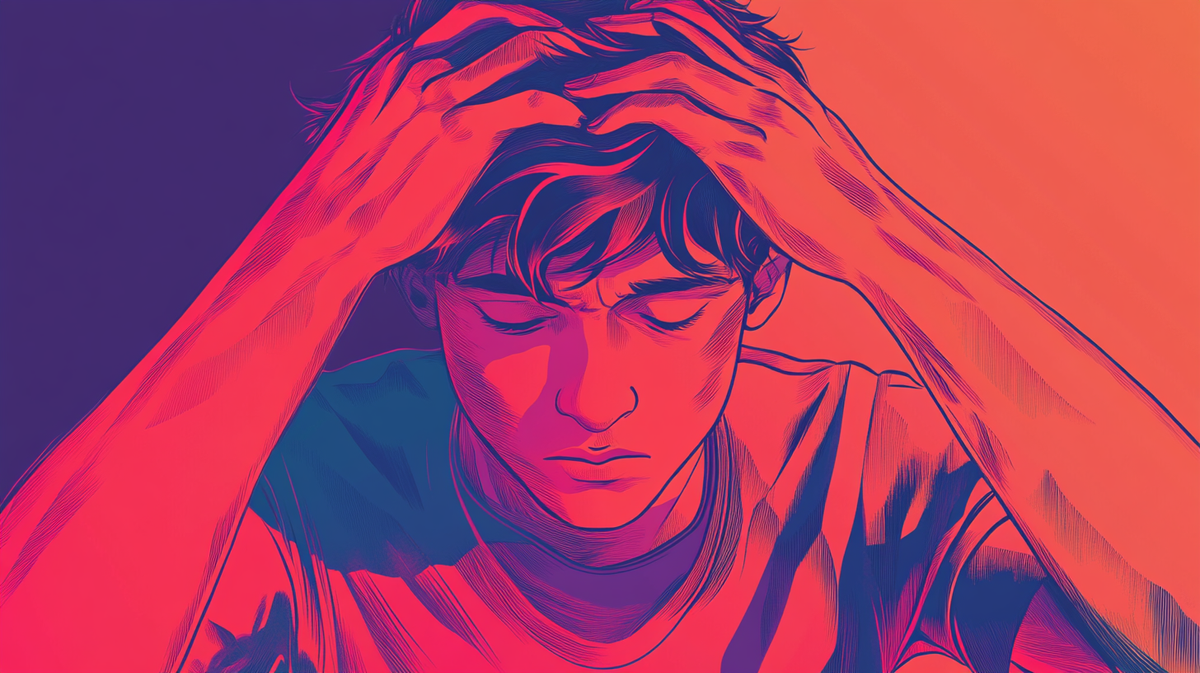
The views become entrenched. Instead of dialogue it’s a dog fight between equally enraged, and equally vulnerable groups trying to shout down the other - because that’s what they believe is how you win an argument: by humiliating your opponent.
Which reveals an uncomfortable truth in what’s really going on here: the MRM doesn't appeal to monsters. It appeals to men - often young, often isolated - who feel failed by modern life. Who were told to be strong, stoic providers, only to find that model collapsing beneath them. The movement tells them: you're not broken, you're being ignored.
The Rhetoric of Rights 📢
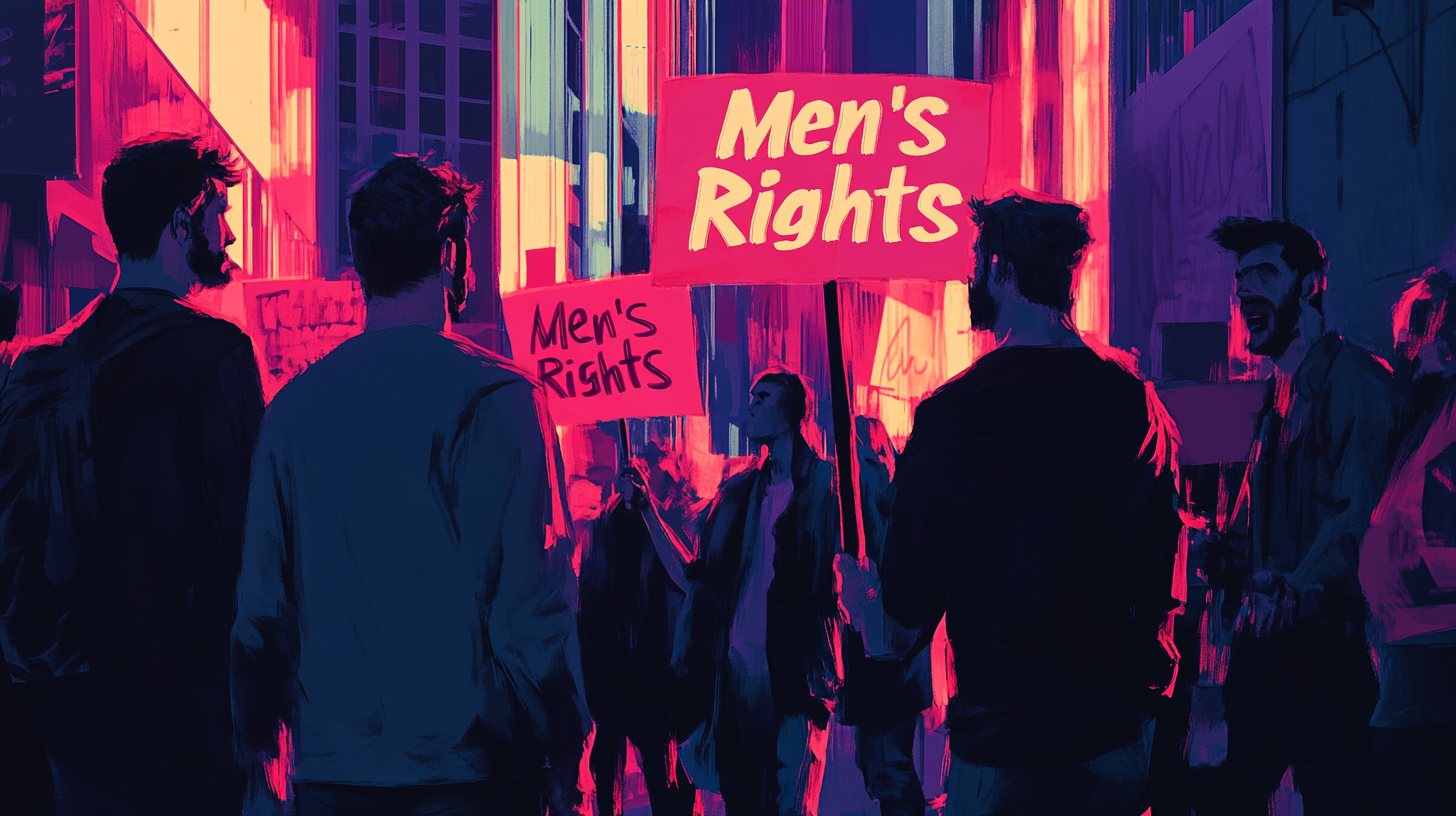
Many men are grappling with a sense of loss and confusion. The traditional markers of masculinity-stable employment, family roles, societal respect-have shifted or eroded. This upheaval leaves a vacuum, one that the MRM fills by offering a narrative: men are now the disadvantaged group.
This perspective provides a clear, albeit controversial, explanation for their struggles. It validates their feelings of disenfranchisement and offers a community that echoes their sentiments.
The MRM often co-opts the language of civil rights to frame its arguments. By positioning men as victims of systemic bias, it draws parallels to other social justice movements. This strategy lends a veneer of legitimacy and urgency to their cause, making it more palatable to those seeking answers.
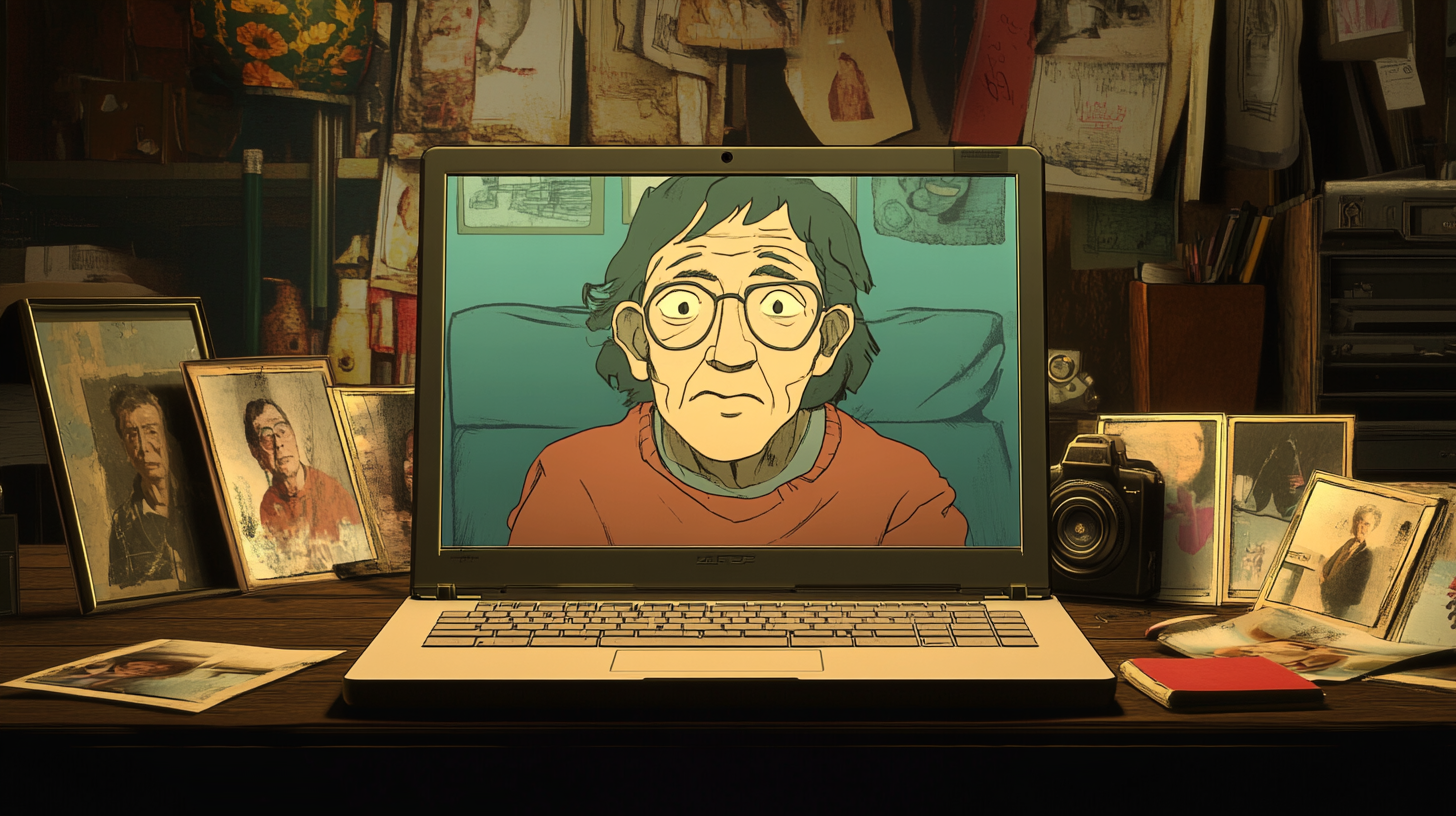
However, this approach can be misleading. While there are legitimate discussions to be had about men's issues, the MRM's framing often overlooks the complexities of gender dynamics and the progress made through feminist advocacy. It also views the dialogue as a zero sum game: that when equality wins, men lose.
I'm not here to defend the MRM. But I'm also not interested in pretending it doesn't exist. As a therapist, I meet men who feel voiceless - not because they hate women, but because they don't know how to talk about pain without shame. And when they go looking for answers, the algorithm doesn't send them to a support group. It sends them to a podcast with a six-pack and a superiority complex.
It also costs them, dearly.
What Misogyny Does to Men 😖
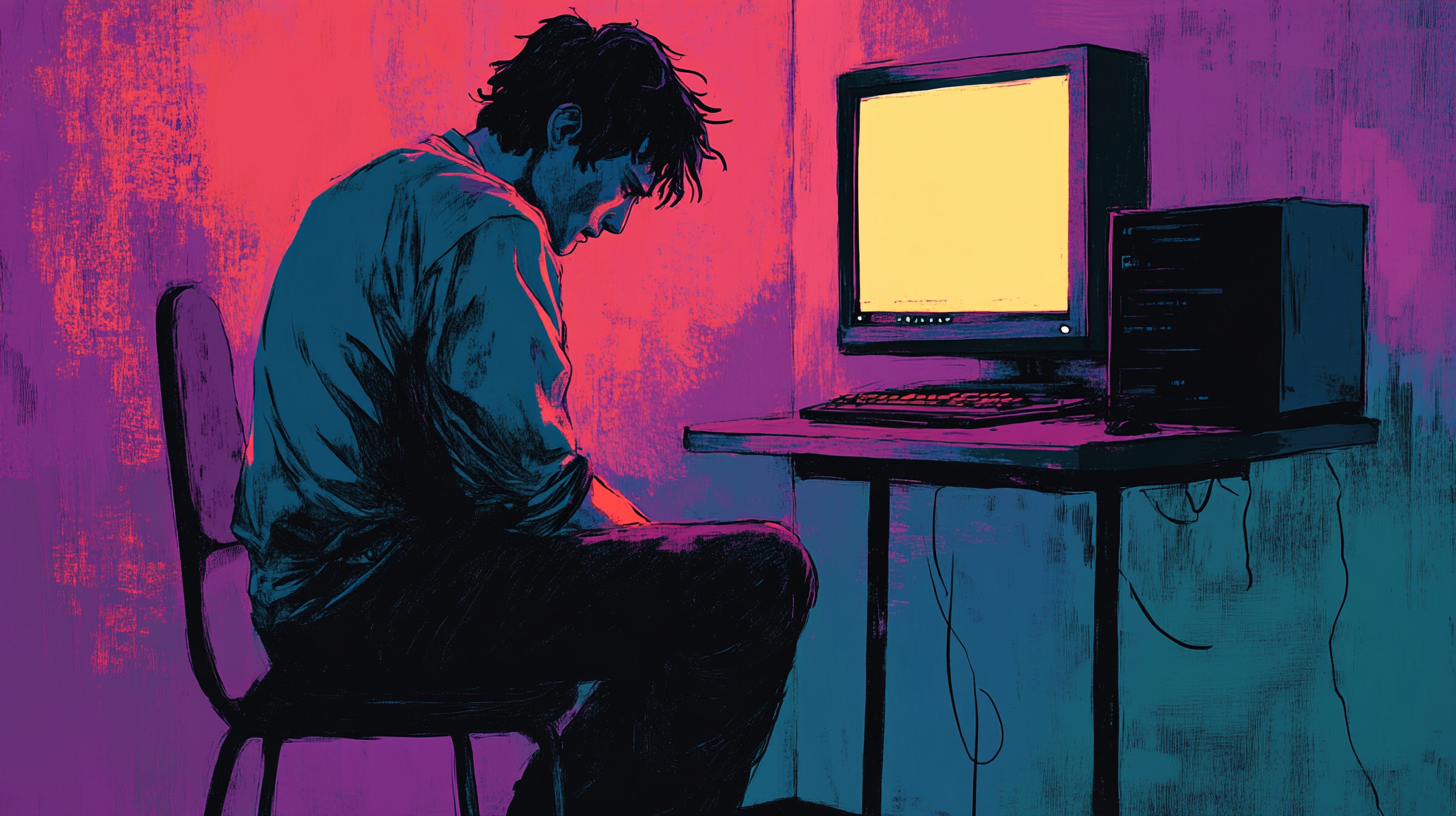
Let's drop the idea that misogyny only hurts women. It does, of course-but what's less talked about is how it quietly eats away at the men who hold those beliefs, especially those stuck in the darker corners of the internet like incel forums and rage-fuelled subreddits.
When you strip away the memes and bravado, what you often find underneath is pain: undiagnosed, unprocessed, and turned inward or outward in some self-destructive form.
Here's what the research (and clinical experience) tells us:
Mentally? It's a mess 😵💫
- Depression and anxiety run high in incel communities. That constant loop of rejection, resentment, and self-loathing doesn't exactly promote mental clarity.
- Loneliness and isolation aren't just a byproduct-they're often the starting point. If connection feels impossible, what else is left?
- Self-esteem tanks. You're told you're undesirable, unlovable-and soon, you start believing it.
- Suicidal thoughts? Tragically common. Some studies show ideation rates that should be ringing alarm bells across mental health services.
- Neurodivergence may play a role too-traits linked to autism spectrum conditions seem more prevalent in these spaces. Not as an excuse, but as context.
- Rejection sensitivity is through the roof. And not just romantically. Even family interactions are read through the lens of expected abandonment.
- Angry rumination and revenge ideation become coping mechanisms. Fantasies of being "seen," of making others "pay." It's not just sadness-it's grief weaponised.
Physically? The toll adds up. 🤒
- Alcohol, drugs, and numbing behaviours are common. Because if you're not taught how to feel your feelings, you'll find a way to drown them.
- Chronic stress hits the body hard. Anxiety, insomnia, headaches, heart strain-none of this is happening in a vacuum.
So where does this leave us? 🤔
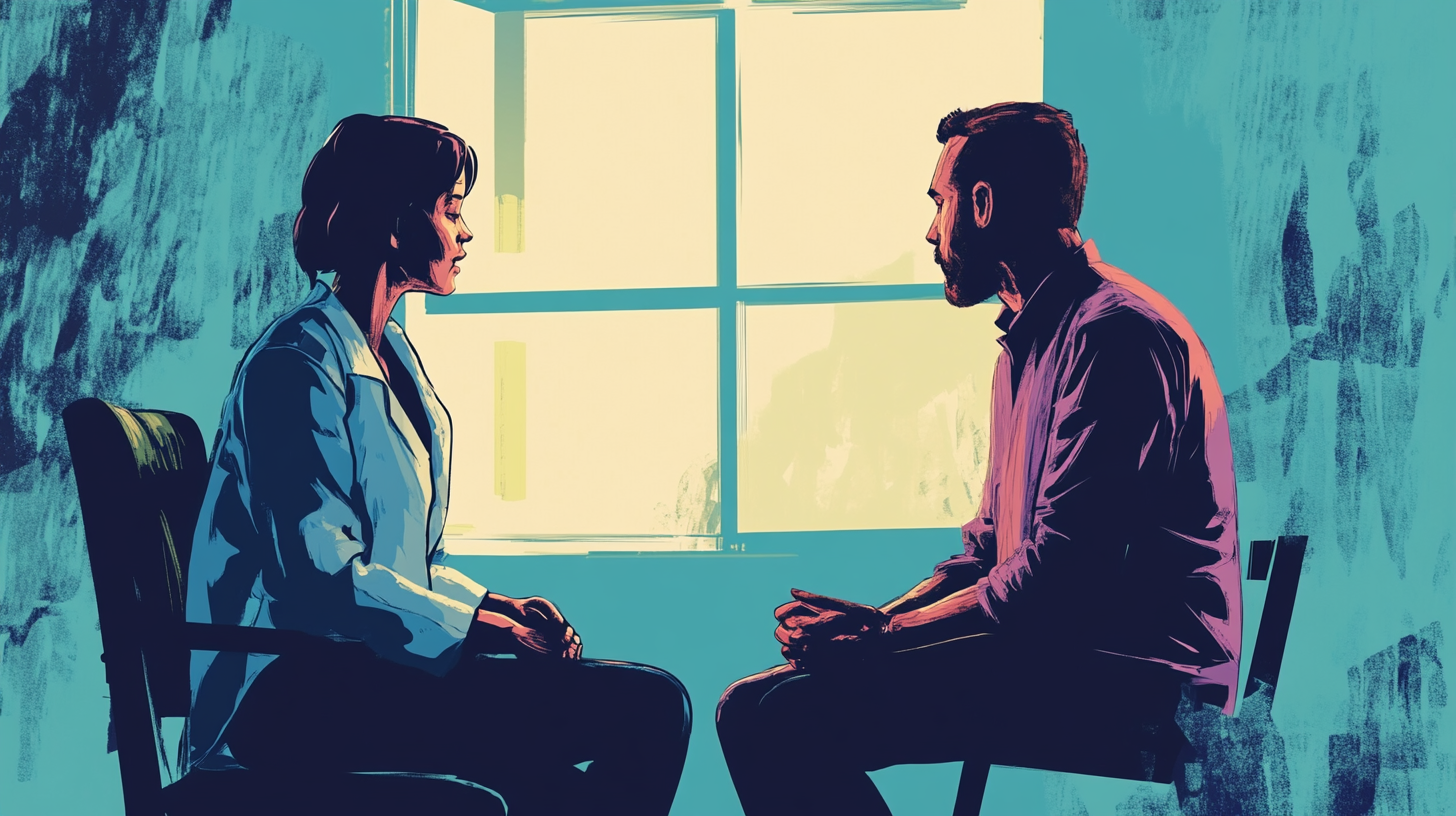
Misogynistic thinking makes intimacy nearly impossible. If you believe vulnerability is weakness and empathy is manipulation, you're not building a relationship - you're performing one. And here's the kicker: the very thing many of these men crave (connection, closeness, being understood) is made more unreachable by the belief system they've absorbed.
If this is sounding bleak, it's because it is. But it's not hopeless. Men don't need to be rescued. They need to be offered a different script - one where strength looks like honesty, where community isn't built on bitterness, and where masculinity isn't defined by control. It’s also about celebrating those parts of this community that are useful: looking after yourself, exercising, improving our outlook. None of these are bad things, yet they can be ill-judged when we use a broad brush to assess the merits of the manosphere.
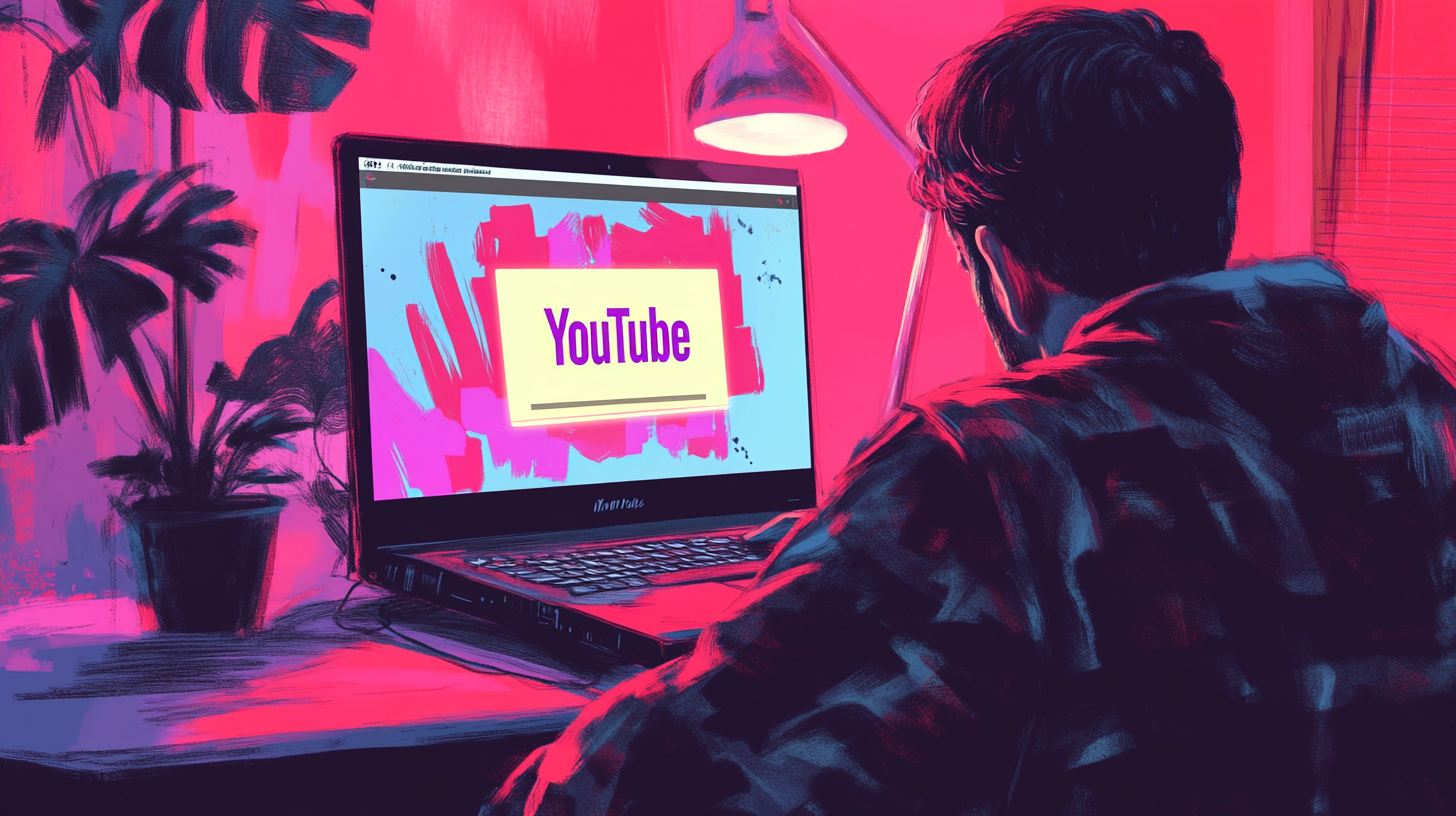
And that's why I write about this. Not to shame. But to reach the ones who haven't yet walked through the door. Understanding the manosphere is about more than countering bad ideas. It's about meeting unmet needs. Not with shame. But with curiosity, responsibility - and a better set of tools.
If you’re interested, I’m starting a small community for men over on my Instagram page. It will be a closed space - free from the algorithms, where I invite men of all ages to talk, and explore themselves with others under my supervision. I’ll be providing tools, and best practices for developing your own inner voice, and helping others do the same. If you’re interested, head on over to my IG page.
An urgent issue 🚨
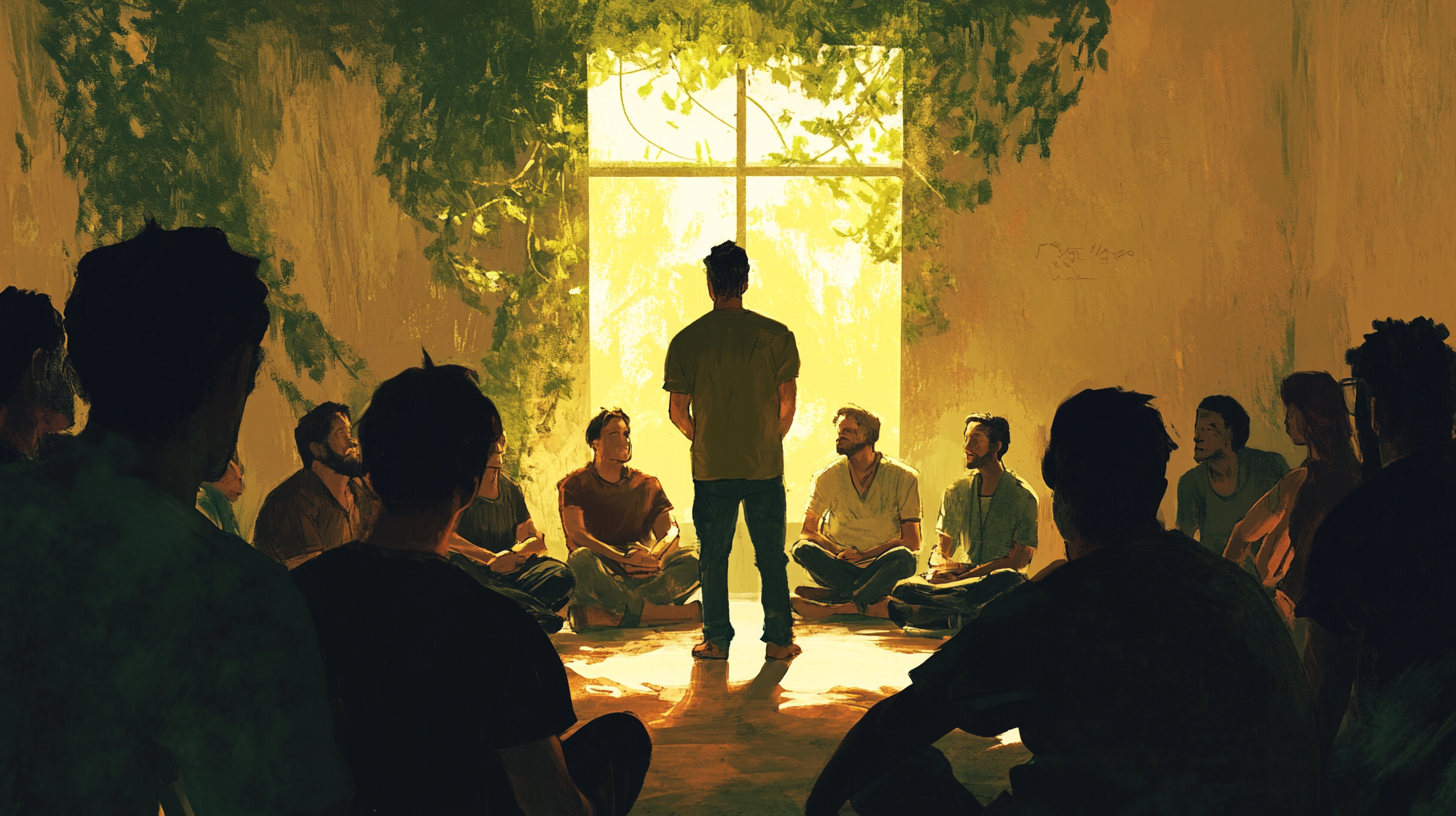
It's easy, comforting even, to keep the manosphere at arm's length. To roll our eyes. To screenshot the worst of it and say, "See? This is what we're dealing with."
But when we flatten men in pain into punchlines or threats, we miss the point, and the chance.
Because beneath the anger, the bravado, the nihilism, and the TikTok soundbites... is just a boy who never got to grieve. A young man who never heard that loneliness doesn't make him broken. A grown man who still doesn't have the language for what's eating him alive.
And if the only place offering him community, clarity, or a story about his pain is dripping in misogyny and martyrdom-he will take it. Because something is always better than silence.
These men are not the enemy. They are the consequence. The consequence of telling boys to be strong, but never soft. To fight, but never feel. To achieve, but never ask for help.
They're not monsters. They're not a glitch in the system. They are the system's inevitable outcome.
So no, this isn't about excusing harm. But it is about understanding where it starts-and why it spreads.
Because if we keep responding to male pain with mockery, dismissal, or shame, we're not solving the problem. We're feeding it.
What we need now is an alternative. A new place to turn. A culture where men can be witnessed without needing to perform, dominate, or disappear.
I don't have all the answers. But I know this: if we want less violence, less extremism, less numbness-we have to make it safer to be a man in pain.
Not later. Now.
Things we learned this week 🤓
- 😌 Want more support from loved ones? Express yourself, says study.
- 😍 Want to know if someone will get weird once you split up? Ask them if they believe in soul mates.
- 🐶 People prefer their dogs over their best friends.
- 💆♀️ Anxiety causes you to lose sight of your body.
Just a list of proper mental health services I always recommend 💡
Here is a list of excellent mental health services that are vetted and regulated that I share with the therapists I teach:
- 👨👨👦👦 Peer Support Groups - good relationships are one of the quickest ways to improve wellbeing. Rethink Mental Illness has a database of peer support groups across the UK.
- 📝 Samaritans Directory - the Samaritans, so often overlooked for the work they do, has a directory of organisations that specialise in different forms of distress. From abuse to sexual identity, this is a great place to start if you’re looking for specific forms of help.
- 💓 Hubofhope - A brilliant resource. Simply put in your postcode and it lists all the mental health services in your local area.
I love you all. 💋












